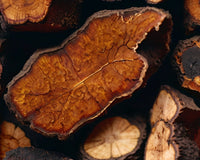almond
Almonds are a source of melatonin. Melatonin regulates your internal clock and signals your body to prepare for sleep.Almonds are also an excellent source of magnesium, and consuming adequate amounts of magnesium can help improve sleep quality, especially for those who suffer from insomnia. Magnesium's role in promoting sleep is thought to be related to its ability to reduce inflammation. Additionally, it may help reduce levels of the stress hormone cortisol, which is known to disrupt sleep.
One study examined the effects of feeding rats 400 milligrams (mg) of almond extract. The study found that rats slept longer and deeper than if they did not consume almond extract. Almonds' potential sleep-related effects are promising, but more extensive human studies are needed.
turkey
Turkey contains high amounts of protein and tryptophan which can cause fatigue, making it the best food to eat before bed.chamomile tea
Drinking chamomile tea can strengthen your immune system, reduce anxiety and depression, and improve skin health. In addition, it contains apigenin. This antioxidant binds to certain receptors in the brain to promote drowsiness and reduce insomnia.A 2011 study of 34 adults found that those who took 270 mg of chamomile extract daily for 28 days fell asleep 15 minutes faster and woke up at night 15 minutes faster than those who did not take the extract. 15 minutes reduced. Another study found that women who drank chamomile tea for 2 weeks experienced improved sleep quality compared to women who did not drink tea.
kiwi
In a four-week study, 24 adults consumed two kiwis one hour before bed each night. At the end of the study, participants fell asleep 42% faster than if they didn't eat before falling asleep. Additionally, their ability to sleep through the night increased by 5%, while their total sleep time increased by 13%.Kiwi's sleep-promoting effects are sometimes attributed to serotonin. Serotonin is a brain chemical that helps regulate your sleep cycle. It has also been suggested that the anti-inflammatory antioxidants in kiwi, such as vitamin C and carotenoids, may be partly responsible for its sleep-promoting effects.
oily fish
The combination of omega-3 fatty acids and vitamin D in fatty fish has the potential to improve sleep quality, as both have been shown to increase serotonin production.In one study, men who ate 300 grams of salmon three times a week for six months fell asleep 10 minutes faster than men who ate chicken, beef or pork. This effect is thought to be a result of vitamin D. The higher vitamin D content in fish has been linked to significant improvements in sleep quality.
Walnut
Walnuts can improve sleep quality because they are one of the best food sources of melatonin.The fatty acid content of walnuts may also help improve sleep. They provide alpha-linolenic acid (ALA), an omega-3 fatty acid that is converted into DHA in the body. DHA may increase serotonin production.
Passion flower tea
Passionflower tea is another herbal tea that has been traditionally used to treat a variety of health ailments. It is a rich source of flavonoid antioxidants. Flavonoid antioxidants are known for reducing inflammation, enhancing immune health and reducing the risk of heart disease. Additionally, passionflower tea has been studied for its potential to reduce anxiety. The antioxidant apigenin may be responsible for passionflower's ability to reduce anxiety. Apigenin produces its calming effects by binding to certain receptors in the brain. There is also evidence that passionflower increases the production of the brain chemical gamma-aminobutyric acid (GABA). GABA works by inhibiting other stress-inducing brain chemicals, such as glutamate.The sedative properties of passionflower tea may promote drowsiness, so drinking the tea before bed may be beneficial. During the seven-day study, 41 adults drank a cup of passionflower tea before bed. The quality of their sleep was significantly better when they drank tea compared to when they didn't drink tea.
White rice
Some people suggest that eating high GI foods, such as white rice, at least 1 hour before bed may help improve sleep quality. One study compared the sleeping habits of 1,848 people based on their intake of rice, bread or noodles. Compared with bread or noodles, high rice intake is associated with better sleep, including longer sleep duration. Although eating white rice may have the potential to promote sleep, it is best consumed in moderation due to its relatively low fiber and nutrient content.





